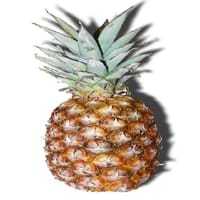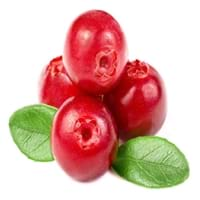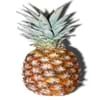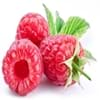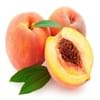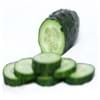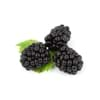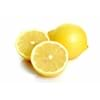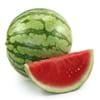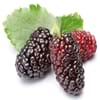Health Benefits
Asthma treatment, Bronchitis treatment, Cancer prevention, Heart care, Increases metabolic rate
Cancer prevention, Heart care, Kidney stone treatment, Scurvy treatment, Ulcer prevention
General Benefits
Anti-inflammatory properties, Controls blood pressure, Digestive aid, Eye care, Healing of wounds, Maintains healthy cholesterol level, Strengthens bones, Treatment of sinusitis, Treatment of common cold
Anti-inflammatory properties, Boosts immune system, Digestive aid, Fights against infections, Strengthens bones
Skin Benefits
Anti-aging benefits, Brightens and lightens complexion, Skin cleansing, Treatment of acne, Treatment of dark spots
Anti-aging benefits, Reduces wrinkles, Skin rejuvenation, Treatment of acne
Hair Benefits
Prevents hair loss
Promotes longer and healthier hair, Protects hair, Treatment of dandruff
Allergy Symptoms
Abdominal pains, Itching in tongue and other parts of mouth, Sneezing, Swelling, Tingling sensation in wrist and face, Vomiting, Wheezing
Anaphylaxis, Breathing difficulty, Itching, Skin rash, Swelling of mouth, tongue or lips
Side Effects
Causes swollen mouth, Allergic reaction, Diarrhoea, Nausea, Skin rash, Vomiting
Allergic reaction, Diarrhoea, Nausea, Stomach pain, Vomiting
Best Time to Eat
Best if taken as a breakfast (or empty stomach), As a snack in the late afternoon, Eat the fresh ones, avoid mixing with any other foods, don't eat after meal., Morning time (before lunch)
Any time except an hour after meal, Don't consume at night and before bed
Vitamin B5 (Pantothenic Acid)
Vitamin C (Ascorbic Acid)
Vitamin K (Phyllochinone)
Phytosterol
Not Available
Calories in Fresh Fruit with Peel
Not Available
Calories in Fresh Fruit without Peel
Not Available
Type
Berry, Tropical
Berry
Varieties
Smooth Cayenne, Abacaxi, Red Spanish and Queen
Early Black, Howes, Ben Lear and Stevens
Inside Color
Yellow
White
Taste
Strong, Sweet, Tart
Bitter, Tart
Origin
Central America, South America
North America
Grows on
Not Available
Trees
Soil Type
Clay, Sandy loam, Well-drained
Clay, Sandy, Well-drained
Climatic Conditions
Hot, Sunny
Warm
Facts about
- A single pineapple takes 3 years to reach maturation.
- Pineapple is not an apple, but is actually a berry.
- The name is with reference to its resemblance to pine cones.
- Pineapple is sweeter if scales are more.
- Europeans thought the cranberry blossom looked like the head of a sandhill crane, hence the name Cranberry.
- They are also known as bounce berries as they bounce when they ripe.
- Cranberries do not grow in water.
Top Producer
Costa Rica
United States of America
Other Countries
Brazil, India, Philippines, Thailand
Azerbaijan, Belarus, Bulgaria, Canada, Latvia, Macedonia, NA, Romania, Tunisia, Ukraine
Top Importer
United States of America
Europe
Top Exporter
Costa Rica
United States of America
Botanical Name
Ananas comosus
Vaccinium Macrocarpon
Synonym
Ananas sativus
Oxycoccus macrocarpus
Subkingdom
Tracheobionta
Tracheobionta
Division
Magnoliophyta
Magnoliophyta
Class
Liliopsida
Magnoliopsida
Subclass
Commelinidae
Dillenhidae
Family
Bromeliaceae
Ericaceae
Species
A. comosus
Vaccinium macrocarpon
Generic Group
Pineapple
Heath
Difference Between Pineapple and Cranberry
We might think that Pineapple and Cranberry are similar with respect to nutritional value and health benefits. But the nutrient content of both fruits is different. Pineapple and Cranberry Facts such as their taste, shape, color, and size are also distinct. The difference between Pineapple and Cranberry is explained here.
The amount of calories in 100 gm of fresh Pineapple and Cranberry with peel is Not Available and 46.00 kcal and the amount of calories without peel is 50.00 kcal and Not Available respectively. Thus, Pineapple and Cranberry belong to Low Calorie Fruits and Low Calorie Fruits category.These fruits might or might not differ with respect to their scientific classification. The order of Pineapple and Cranberry is Poales and Ericales respectively. Pineapple belongs to Bromeliaceae family and Cranberry belongs to Ericaceae family. Pineapple belongs to Ananas genus of A. comosus species and Cranberry belongs to Vaccinium genus of Vaccinium macrocarpon species. Beings plants, both fruits belong to Plantae Kingdom.
